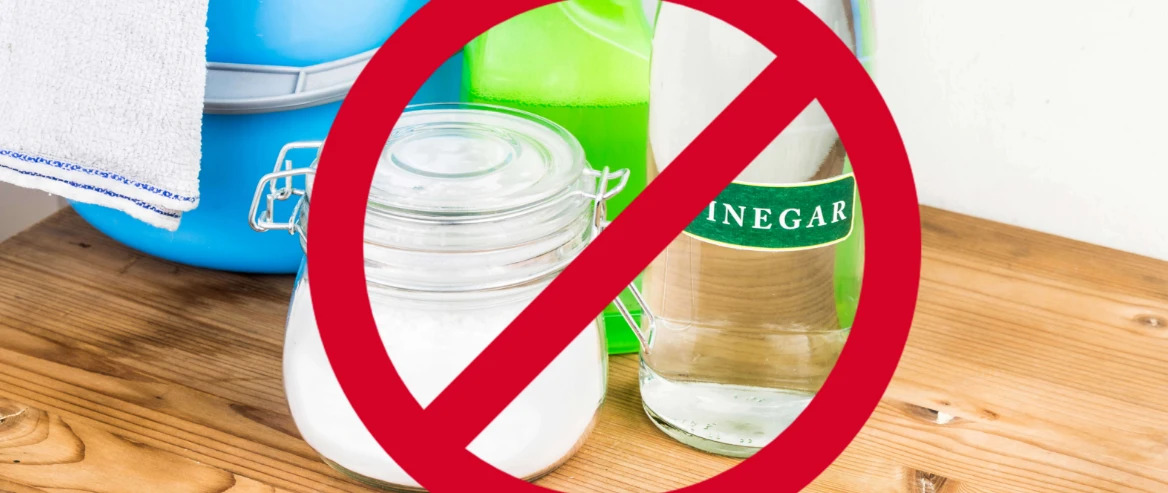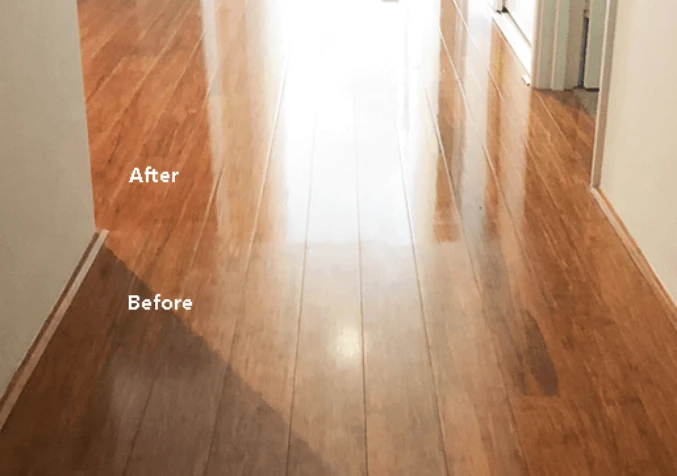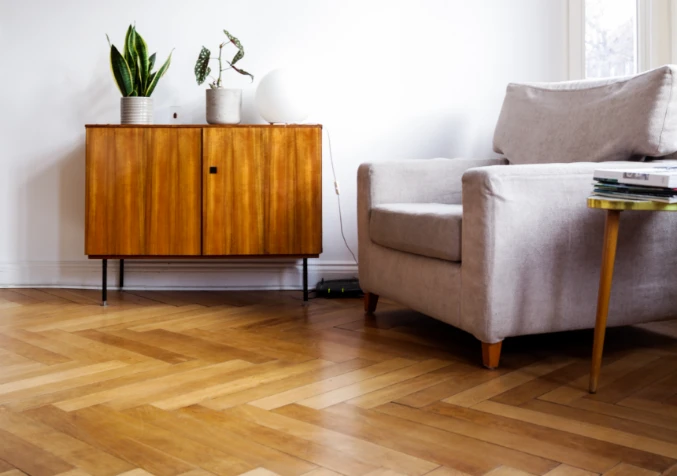Why You Should Never Clean Wood Floors with Vinegar
Published on Aug 10, 2018

Water and Vinegar make a great, environmentally friendly and cost-effective cleaning solution that does a fantastic job of cutting through grime. It’s one of those multi-purpose cleaning solutions that can be used just about anywhere in the house.
Just don’t use water and vinegar on your floor boards!
The Long-term Effects of Using Vinegar on Wood
It’s important to remember that when you're cleaning your floor boards, you’re not actually cleaning the wood, but the protective coating or finish that’s been applied to the floor boards. Vinegar is an acid and it will slowly break down the protective coating on the floor, eventually leaving the floor looking dull. This will often start to become noticeable after 12 – 24 months of regular cleaning with water and vinegar.

It’s also important to minimise the amount of water used when cleaning a wood floor. If water is left on the floor it will penetrate into the ends and sides of floor boards and worn areas. It can cause water-marking, swelling, rotting and discolouration of your floor boards. It’s often said that “water is the enemy of wood”.
How should I keep my wood floors clean?

-
Remove dust and grit regularly with a micro-fibre dust mop. Dulling and wear on a wood floor is created by people walking over a gritty floor, placing pressure on the grit which causes micro-scratches in the floor's coating. A grit free floor will always look better for longer.
-
Use a gentle PH neutral cleaner on your floor. We recommend the following mixed up in a 1 litre spray bottle
-
1 litre of warm water
-
5 -7 drops of castile soap
-
Up to 10 drops of essential oil. Citrus fragrances work well
-
-
Spray the solution onto the floor and use a slightly damp micro-fibre mop or cloth to clean the floor. Keep spraying the floor with a hand sprayer as you go. For grimy areas, leave the cleaning solution on the floor for 20 seconds to give it time to break down the grime and use a little elbow grease!
Castile soap is a natural soap made from vegetable oil, often with an olive oil base. We recommend purchasing castile soap in liquid form from suppliers such as Range Products, Dr Bronners and Aussie Soap Supplies. When using Castile Soap remember that a little goes a long way.